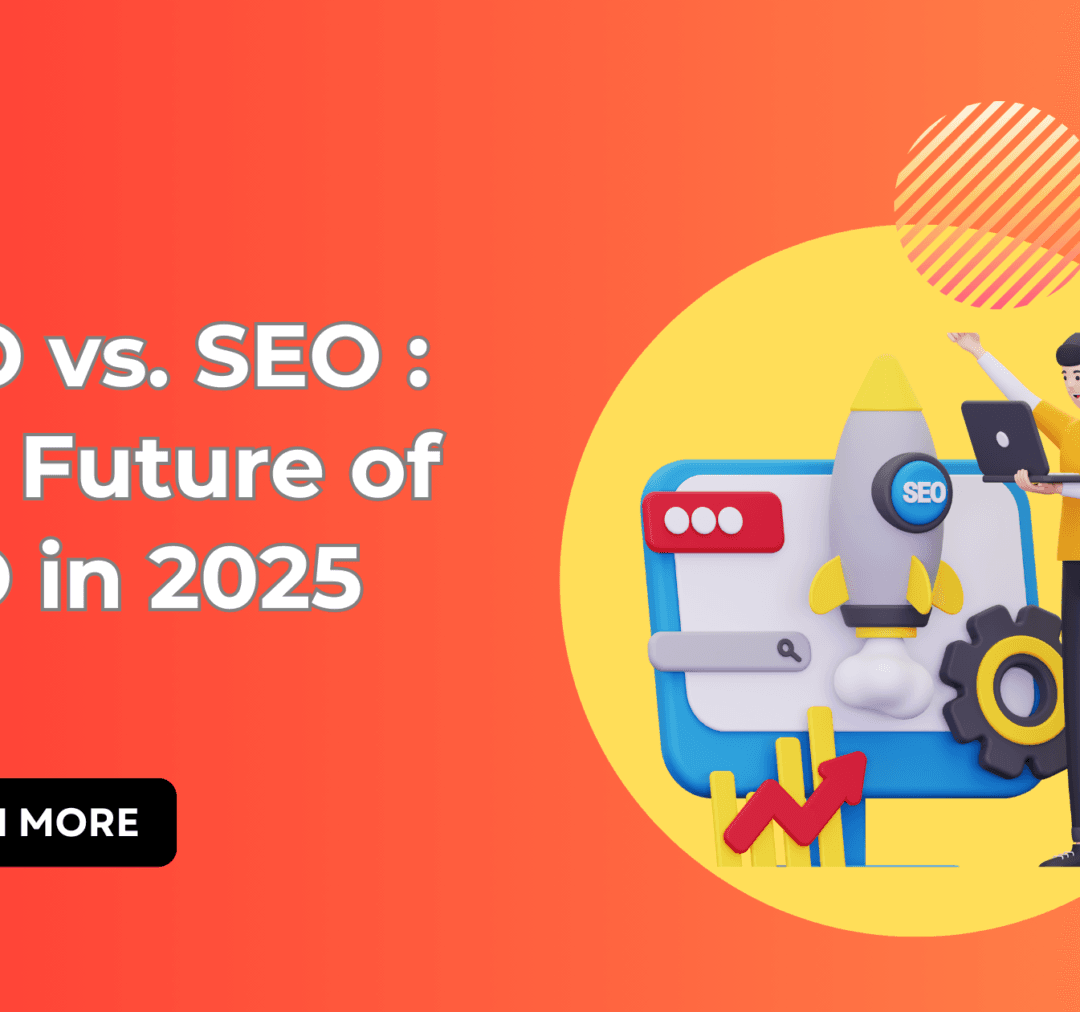The debate between SEO vs AEO is growing, with many wondering if AEO is a subset of SEO or if it will replace traditional SEO entirely. The reality is that the two are not competing forces but rather complementary strategies that work together. As we move into 2025, businesses need to understand how to optimize for both SEO and AEO to stay ahead in search rankings and capture more organic traffic.
SEO is no longer just about ranking higher on Google. The way we search has changed. People don’t always type keywords into Google anymore—they ask Siri, Alexa, and Google Assistant to fetch answers for them. With the rise of AI-driven assistants like Siri, Alexa, and Google Assistant, users no longer just type in search queries; they ask direct questions and expect instant answers. This shift has given rise to a new concept known as Answer Engine Optimization (AEO).
What is SEO?
Search Engine Optimization, commonly known as SEO, is the practice of optimizing a website’s content, structure, and backlinks to improve its visibility in search engine results. The goal of SEO is to rank higher on search engine results pages (SERPs) for targeted keywords so that users searching for related content can easily find the website.
SEO consists of three main components:
- On-Page SEO – This involves optimizing individual web pages with proper title tags, meta descriptions, headings, and relevant keywords. It also includes improving readability, internal linking, and optimizing images for faster load times.
- Off-Page SEO – This focuses on building authority through backlinks from reputable websites. Search engines consider backlinks as a signal of credibility and relevance, which helps in improving rankings.
- Technical SEO – This ensures that a website is structured in a way that search engines can easily crawl and index its content. It involves optimizing website speed, mobile-friendliness, XML sitemaps, and structured data implementation.
SEO has been the cornerstone of digital marketing for decades, helping businesses increase their online presence and organic traffic. However, search behavior has shifted, and traditional SEO alone may not be enough in the coming years.
What is AEO?
With advancements in AI and natural language processing, search engines are now shifting from simply providing a list of ranked web pages to delivering direct, precise answers to user queries. This has led to the rise of Answer Engine Optimization (AEO). The full form of AEO is Answer Engine Optimization, and it refers to the process of optimizing content so that it appears as a direct answer to a query in featured snippets, voice search results, and AI-powered search engines.
Unlike traditional SEO, which focuses on ranking a webpage, AEO focuses on delivering structured answers in a way that search engines can quickly retrieve and present to users. With AI-driven search assistants playing a major role in online search behavior, businesses must rethink their content strategy to ensure they provide concise, authoritative, and well-structured answers that AI assistants can extract and deliver.
The Key Differences Between SEO and AEO

While AEO is a subset of SEO, it differs in key areas that businesses must pay attention to.
| Feature | SEO (Search Engine Optimization) | AEO (Answer Engine Optimization) |
|---|---|---|
| Goal | Improve website rankings on search engines | Be featured in AI-driven voice searches & snippets |
| Best For | Websites, blogs, and eCommerce platforms | AI-powered assistants (Google Assistant, Siri, Alexa) |
| Content Type | Long-form, keyword-optimized content | Concise, structured, and direct answers |
| Ranking Factors | Backlinks, content depth, and page speed | Structured data, question-based formatting, and clarity |
| Search Intent | Targets broad informational or transactional searches | Focuses on quick, direct, and conversational answers |
| Traffic Source | Organic search results drive website visitors | Users get instant responses without clicking links |
| Optimization Strategy | Keyword research, backlinks, and technical SEO | Schema markup, structured data, and AI-friendly formatting |
| User Experience | Encourages users to explore content on the website | Provides immediate, precise answers with minimal effort |
| Best Use Case | Driving long-term organic traffic to a website | Capturing featured snippets and voice search results |
| Future Relevance | Still essential for digital presence | Growing in importance as AI search expands |
Why AEO is Important for the Future of Search?
The way people search for information has changed dramatically over the past few years. More users rely on voice search and AI-powered assistants rather than manually typing out search queries.
1. The Rise of Voice Search
Voice search has gained significant popularity, with millions of users relying on AI assistants for quick answers. Instead of typing “best digital marketing agency in Delhi,” users are now asking, “Which is the best digital marketing agency in Delhi?” This shift in search behavior means that businesses must optimize their content for conversational search queries rather than just targeting traditional keywords.
2. The Growth of AI-Powered Search
Search engines have evolved beyond simple keyword matching. Google’s AI-driven algorithms, such as MUM and BERT, now analyze context, intent, and semantic meaning to deliver the most relevant answers. This has increased the importance of structured data and schema markup, making AEO an essential part of modern search strategies.
3. Zero-Click Searches and Featured Snippets
Google now prioritizes zero-click searches, where users get direct answers on the search page itself without clicking on a link. Featured snippets, knowledge panels, and People Also Ask sections dominate the top results, making it crucial for businesses to structure content for AEO.
How to Optimize for AEO in 2025?
To ensure that your content is AEO-friendly, follow these key strategies:
- Use Structured Data and Schema Markup: Structured data helps search engines understand content better and increases the chances of appearing in featured snippets. Implementing schema markup, such as FAQ Schema, How-To Schema, and Speakable Schema, can enhance visibility in AI-driven search results.
- Answer Questions Clearly and Concisely: Unlike traditional SEO, AEO requires businesses to provide direct and concise answers that AI assistants can quickly extract. Use a question-and-answer format to improve the chances of getting featured in snippets.
- Optimize for Voice Search: With the rise of voice search, businesses must adapt their content strategy to match conversational queries. Focus on long-tail keywords and natural language phrases that people use in everyday conversations.
- Improve Page Load Speed and Mobile Friendliness: AI-powered search assistants prioritize fast-loading and mobile-friendly websites. Ensuring that your website meets Google’s Core Web Vitals can enhance the chances of appearing in search results.
- Use Bullet Points and Numbered Lists: Search engines favor structured content that is easy to read and extract. Using bullet points, numbered lists, and bold headings can improve readability and increase the likelihood of appearing in featured snippets.
Conclusion: The Future of SEO in 2025
The rise of Answer Engine Optimization does not mean the end of traditional SEO. Instead, it signifies an evolution in search behavior that businesses must adapt to. While SEO remains crucial for organic rankings, AEO is becoming increasingly important for AI-driven searches, voice assistants, and featured snippets.
To stay ahead in 2025, businesses must integrate AEO into their existing SEO strategies by focusing on structured content, conversational search queries, and AI-friendly optimization techniques. Those who adapt will gain a competitive edge in the rapidly changing digital landscape.
FAQs
Q1. What is the full form of AEO?
Ans: The full form of AEO is Answer Engine Optimization, a strategy that focuses on optimizing content for AI-powered search engines and voice search assistants.
Q2. How does AEO is a subset of SEO?
Ans: AEO is a subset of SEO because it builds upon traditional SEO practices but focuses specifically on optimizing content for direct answers in voice search and featured snippets.
Q3. Is Answer Engine Optimization necessary for small businesses?
Ans: Yes, small businesses can benefit from AEO by enhancing their visibility in voice search and zero-click results, helping them reach potential customers more effectively.
Q4. How does voice search impact AEO?
Ans: Voice search prioritizes conversational, question-based queries. Optimizing content for natural language and long-tail search phrases increases the chances of being featured in voice search results.
Q5. Will traditional SEO become obsolete?
Ans: No, traditional SEO will not become obsolete. Instead, it will evolve alongside AEO to accommodate the growing influence of AI-driven search assistants and zero-click searches.








